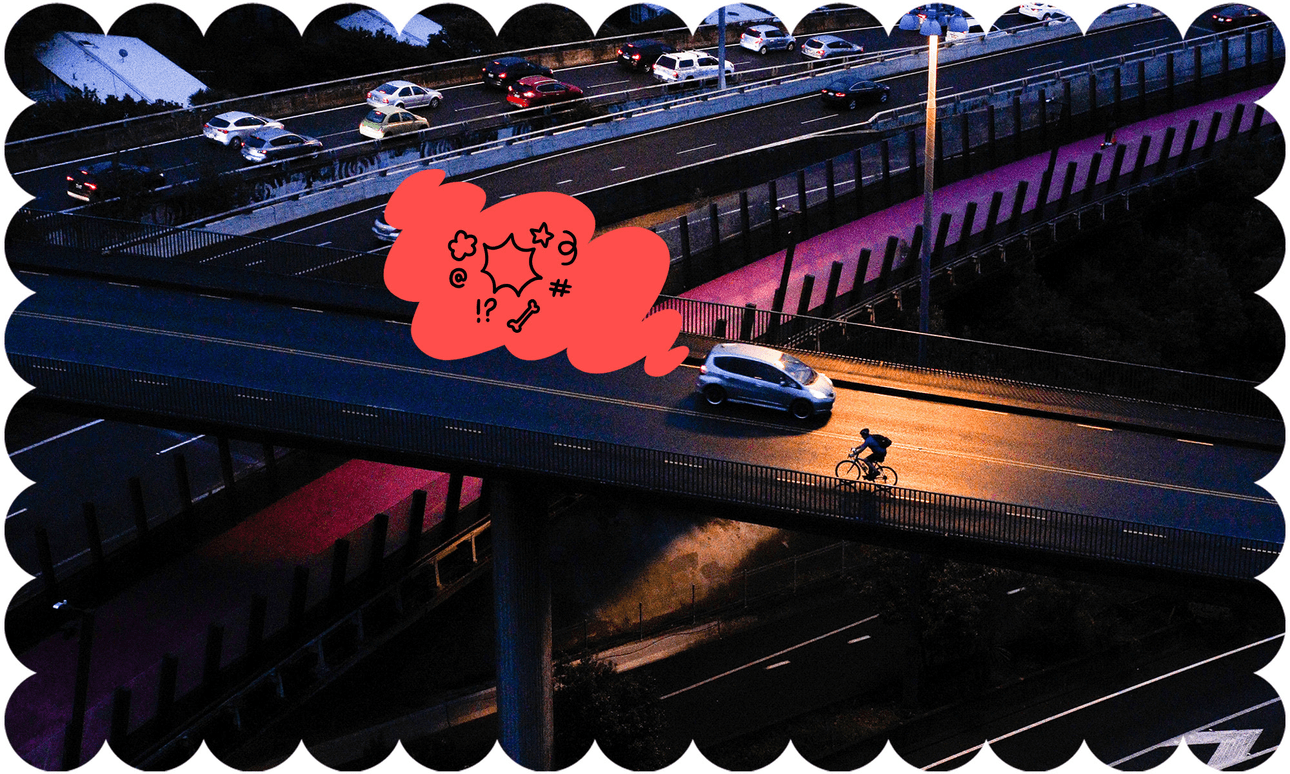A spicy staff chat during a recent AT seminar has revealed high levels of hostility inside the organisation when it comes to cycling and cyclists.
A recent Auckland Transport seminar on active transit was meant to be a positive affair.
The agency’s in-house walking and cycling champions explained the many benefits of a connected bike network.
They talked about how biking was vital for meeting the emissions reduction goals of the council’s climate plan, Te Tāruke-a-Tāwhiri.
But these staff had made one fatal error.
In the online chat they’d set up for AT workers to comment on the meeting, they’d switched on anonymous comments.
Things started out OK, with compliments delivered to a staff member for their presentation.
But the tenor of the conversation quickly took a turn.
One early comment had a faint whiff of hostility.
Soon the floodgates opened, with AT employees aiming their barbs at cyclists they’ve seen skirting the rules.
The hand-wringing over safety continued, with the focus now primarily on pedestrians.
Other AT staff seemed surprised that cycling was connected to climate action.
More still thought the cycling budget, which makes up $306 million of AT’s $32 billion 10-year spend, could be redirected to fixing the city’s broken public transport system.
These sorts of sentiments wouldn’t be out-of-the-ordinary for the comments on the Mike Hosking Breakfast Facebook page.
But they’re eye-opening coming from staff at an agency charged with increasing Auckland’s cycling numbers roughly sevenfold over the next seven years.
In a statement to The Spinoff, AT’s executive GM customer experience Vanessa Ellis said the comments were not representative of attitudes across the wider organisation.
“This was an hour-long livestream that all AT staff were invited to and around 400 attended. The livestream was an opportunity to share with staff the full breadth of the work we are doing to get more Aucklanders walking and cycling which includes planning, construction, public activations, and community engagement,” she said.
“As with any large organisation, people have a range of views on different topics. However, the livestream, feedback, and comments from staff were actually overwhelmingly positive in this instance.”
Other AT employees did press back against the deluge of anti-cycling sentiment, pointing out that anyone with safety concerns over bikes would be absolutely flabbergasted to hear about the harm caused by cars, which kill nearly 400 people and cost us nearly $550 million in ACC medical bills every year.
Others argued AT shouldn’t make the roads deadly for every cyclist just because a few of them have run red lights, as that logic would be troubling if applied to every transport mode.
For years, climate-centred organisations have cast doubt on AT’s commitment to building walking and cycling infrastructure.
AT went from a target of 16km of new cycleways in 2016–17 to just 4km in 2020–21, after its former chief executive Shane Ellison scrapped a dedicated cycling team within the organisation.
Cycling advocates have also criticised AT’s lax approach to their safety.
Their anger intensified following the death of 19-year-old Levi James on a section of road near the Royal Oak roundabout in March last year.
AT had ignored calls for it to build cycling infrastructure or implement safe speeds when it upgraded the roundabout in 2021.
More recently, AT paused one of three long-awaited safety upgrades to Auckland’s inner west suburbs following a letter-writing campaign from Waitematā councillor Mike Lee.
The paused project has large amounts of support from the local community. Last week, 38 organisations, including six local schools, called on AT to push ahead with its original plans.
In a letter to AT chief executive Mark Lambert, Point Chevalier School principal Stephen Lethbridge said his Year 1 to 6 students had to navigate busy and dangerous roads and needed better walking or cycling facilities to be safe.
“It is only a matter of time before we see a tragic outcome for our students,” he wrote.
Through all these decisions, AT has insisted on its commitment to boosting cycle numbers and increasing the safety of all road users.
Richard Hills, a councillor on the North Shore, said he just doesn’t believe the agency anymore.
He called the anonymous staff comments “disappointing but not surprising”.
“I think it’s clear many in Auckland Transport have a clear lack of understanding of the importance of safe walking and cycling infrastructure and maybe even a complete lack of awareness of climate change.
“The continued delay, cancellation and cuts to cycling budgets and projects is further proof we are not on track to be a smart, connected, international city.”
Hills said AT’s apathetic attitude to safe cycling and climate action were evident in how it responds to Te Tāruke ā Tāwhiri, which he championed in council, and in its decision on the inner west upgrades.
“The leadership continue to ignore Te Tāruke ā Tāwhiri, the transport emissions reduction plan and the public who continue to ask and even submit in great numbers for more safe cycling. Even when kids are being put in danger they’ll take the opinion of one elected councillor over all the other voices just to delay and cancel any good projects we have.”
For years, AT has blamed the endless delays to its more progressive walking, cycling, and public transport plans on its need to consult communities and appease opponents.
Different theories emerged on the reasons behind its tardiness as the active transit seminar chat went on.
In response to questions on why AT wasn’t lobbying Waka Kotahi to open a lane of the Auckland Harbour Bridge for walking and cycling, one staff member pointed to the possibility that the agency’s own employees just don’t want that sort of project to go ahead.
Another summed up the situation.
As it turns out, the most significant opposition AT faces when it comes to cycling isn’t necessarily out in the community.
It may be located inside the organisation’s own office walls.



